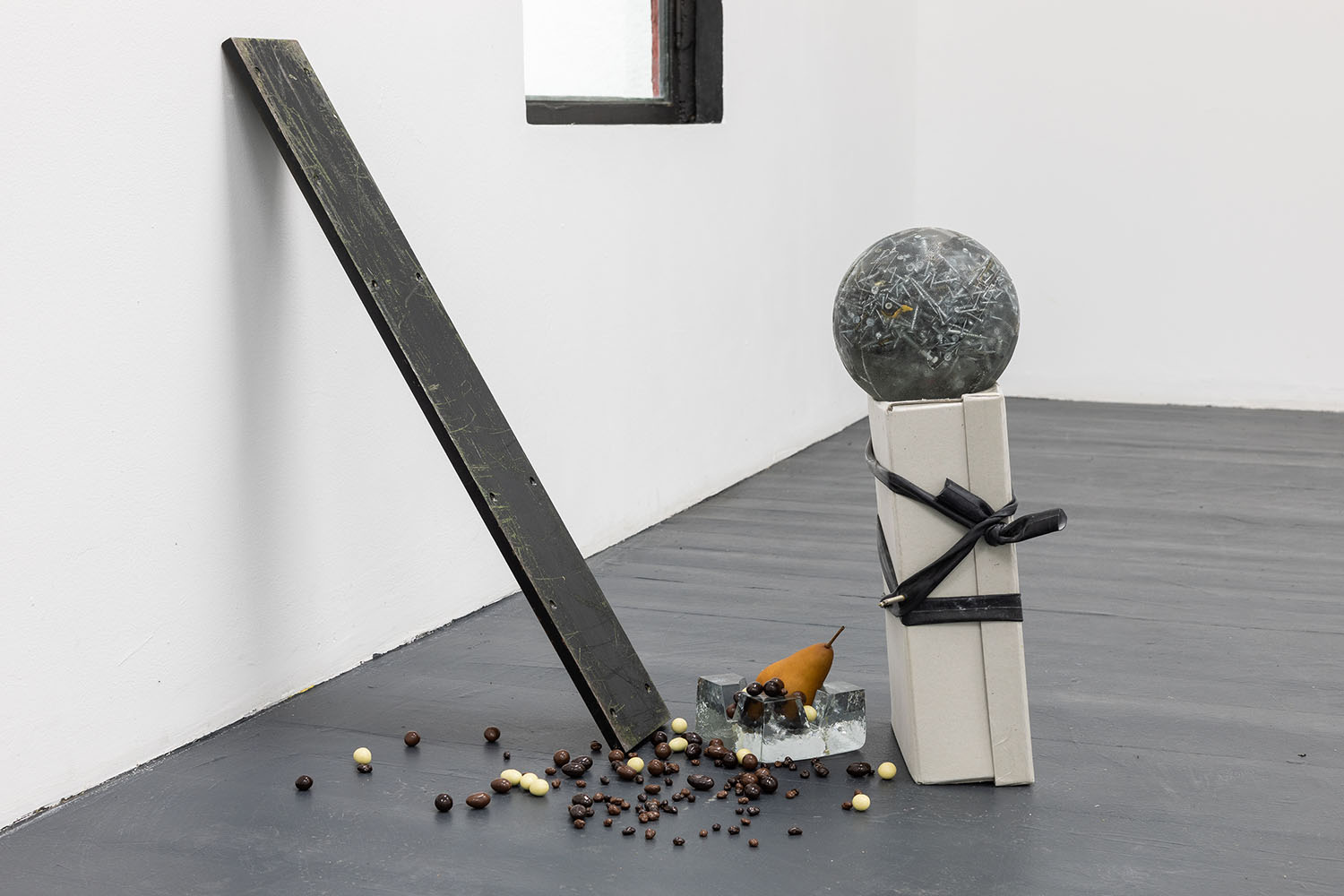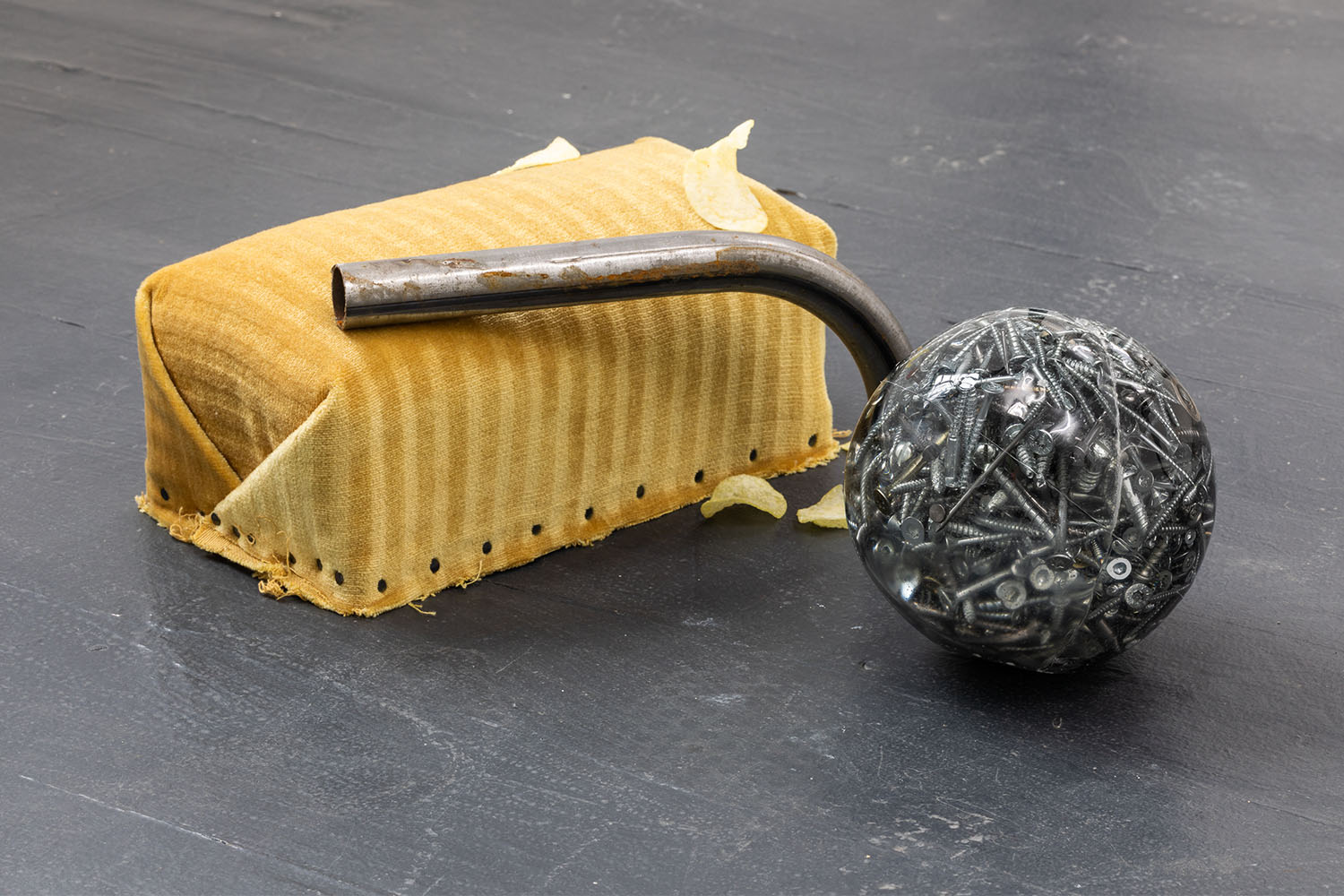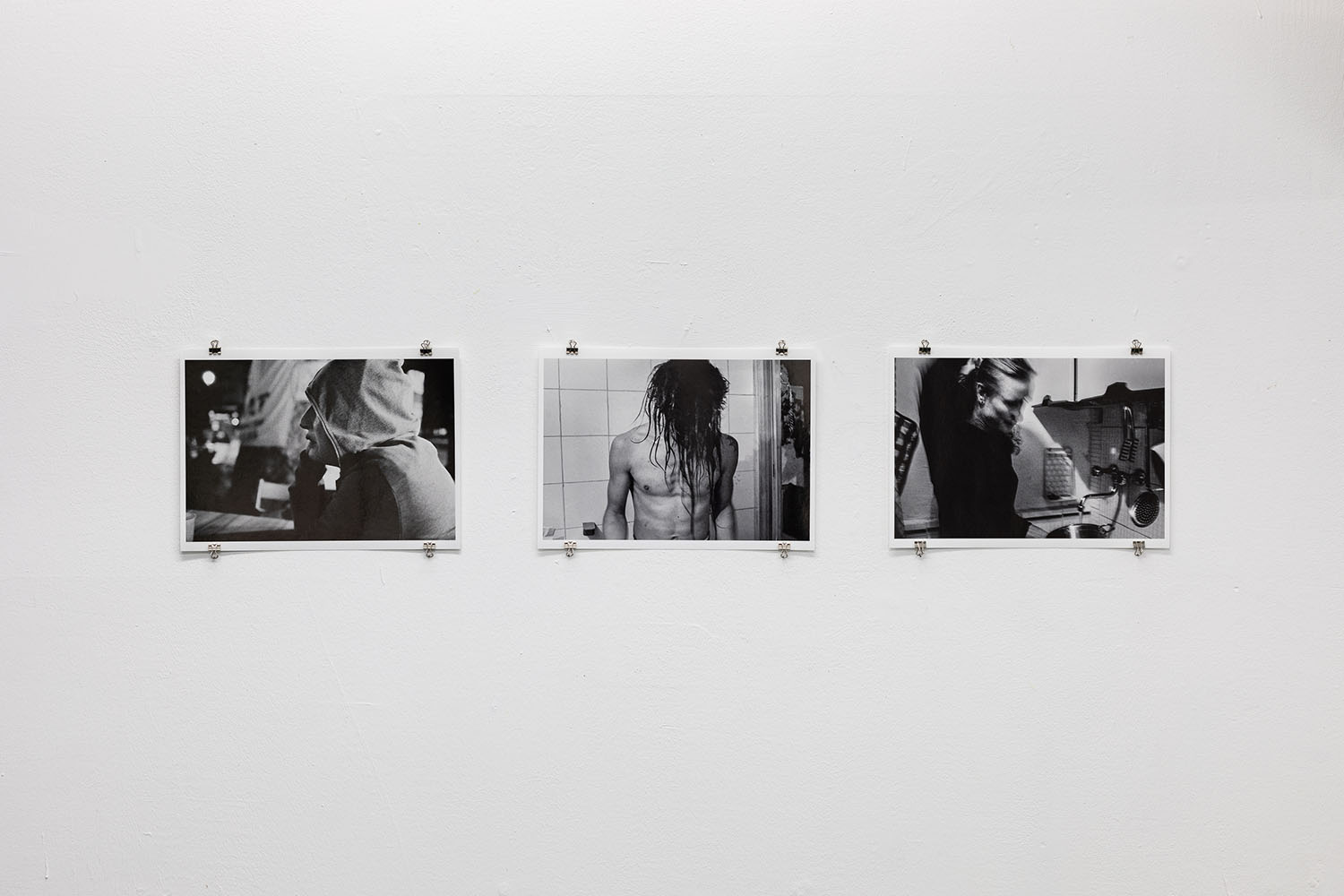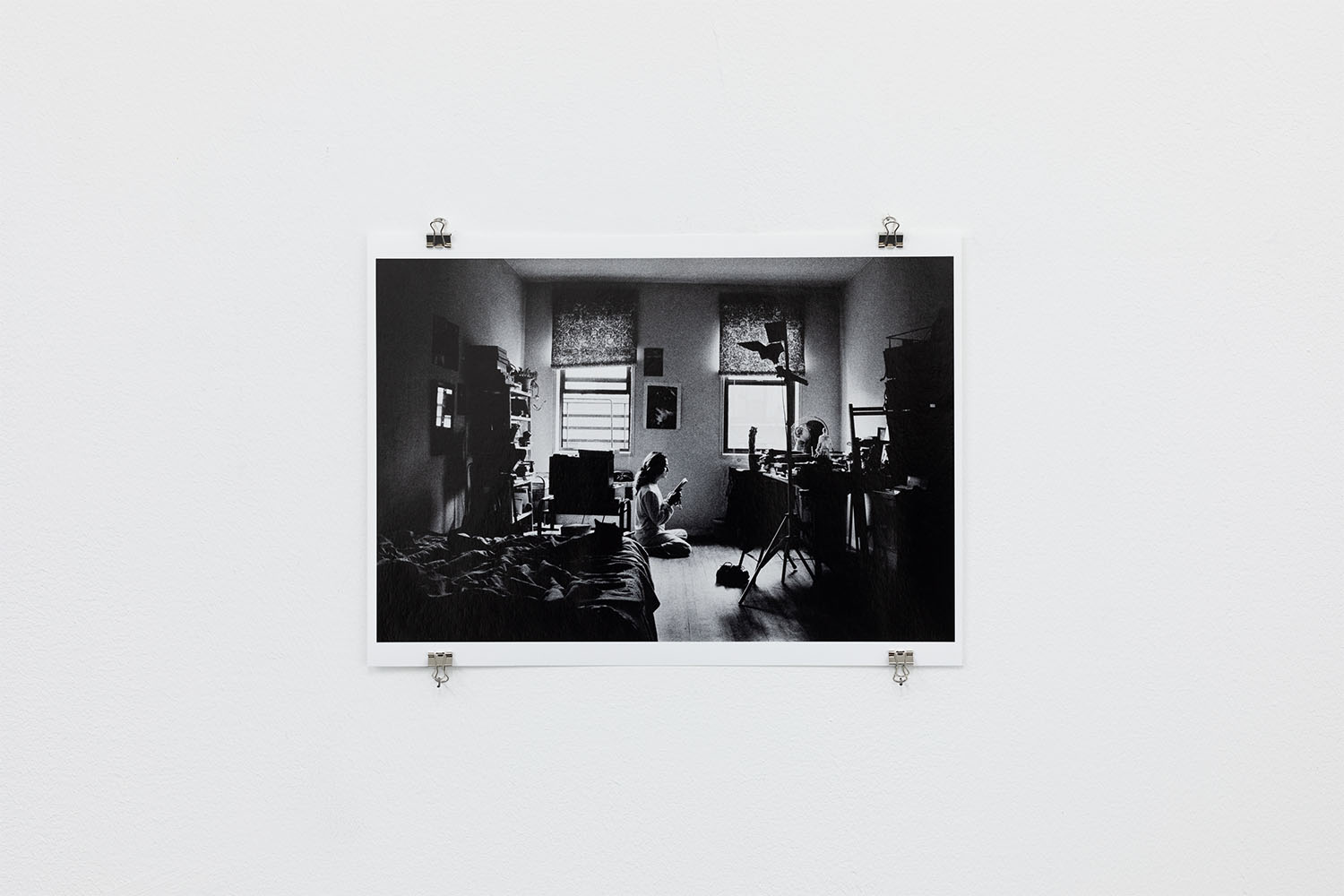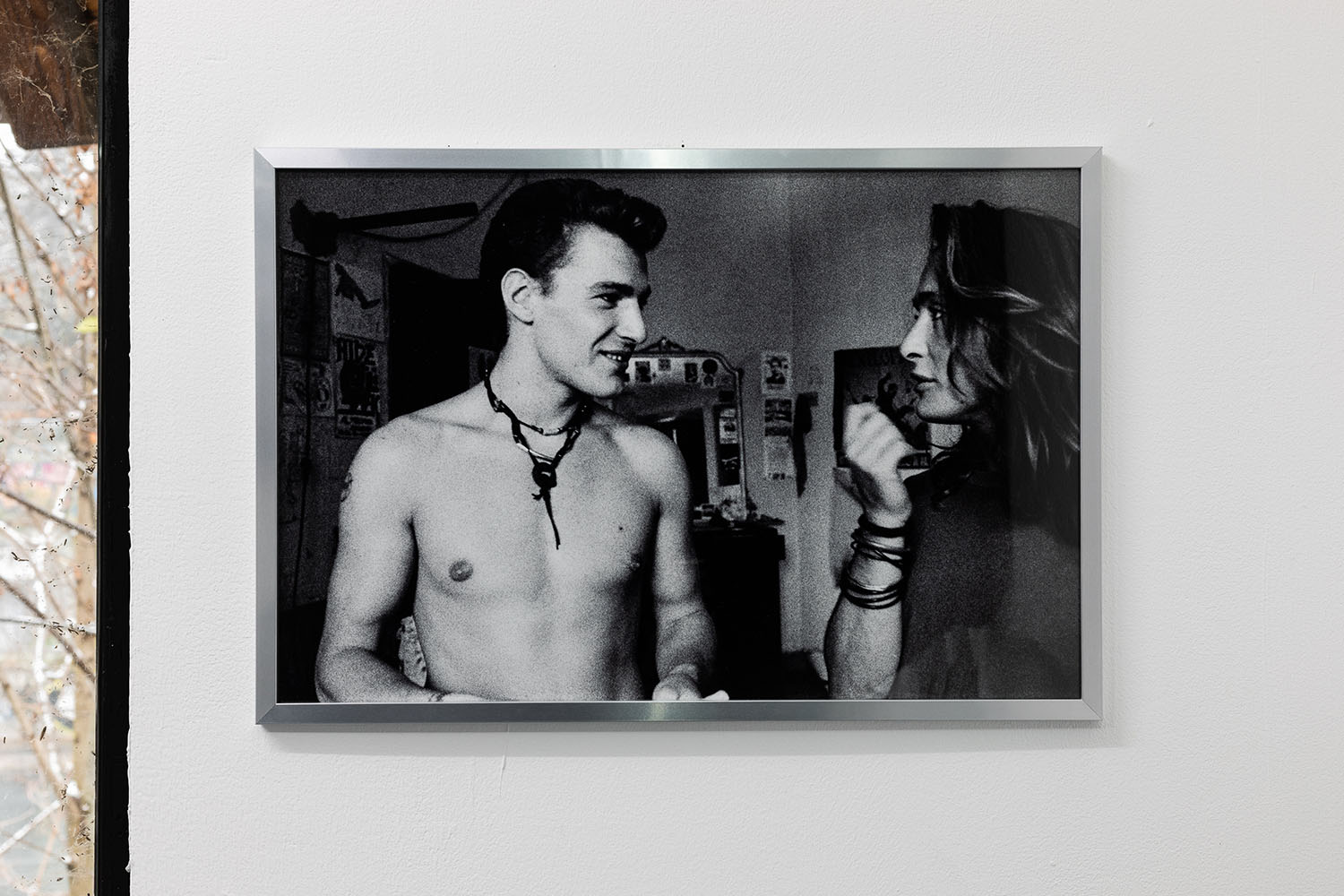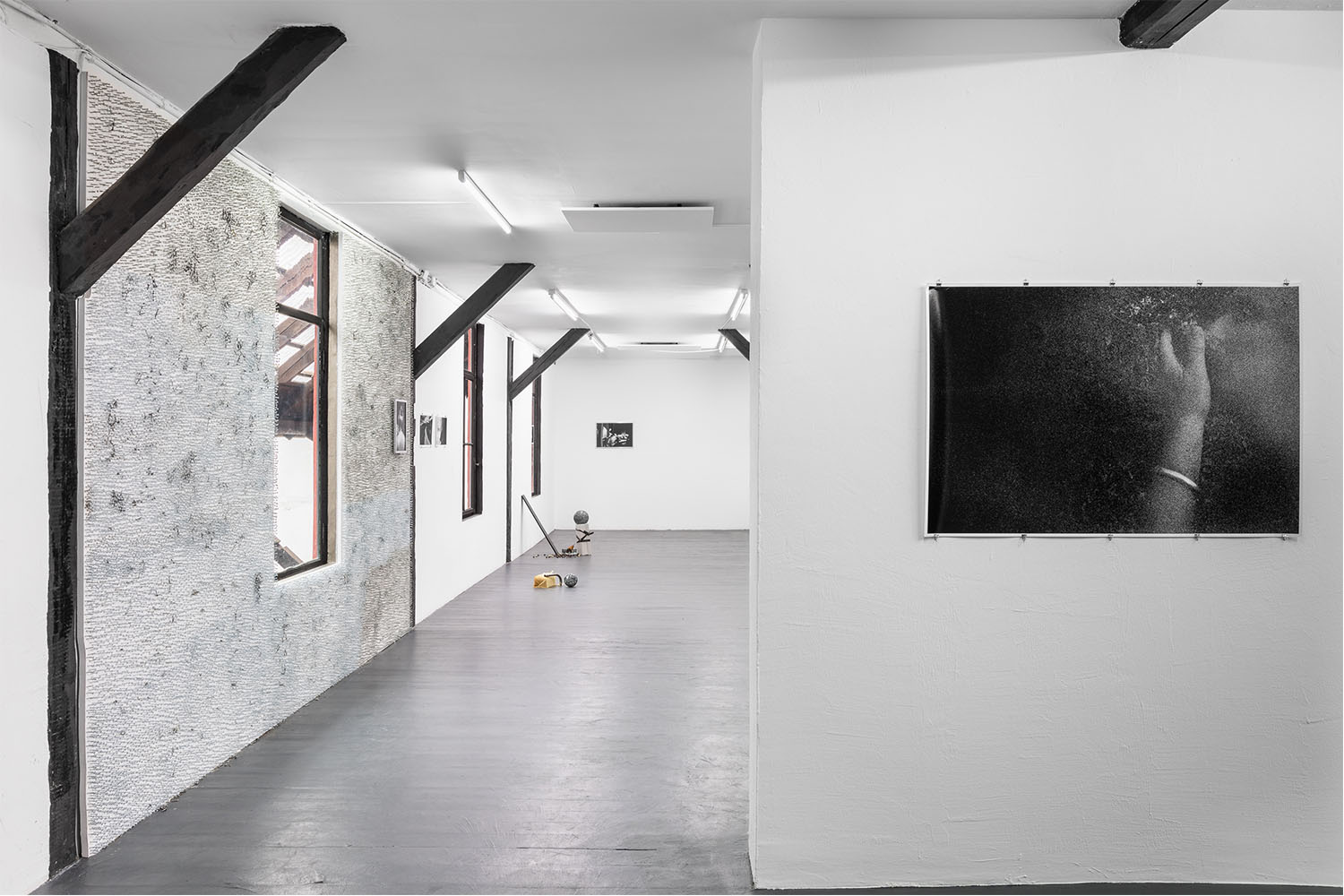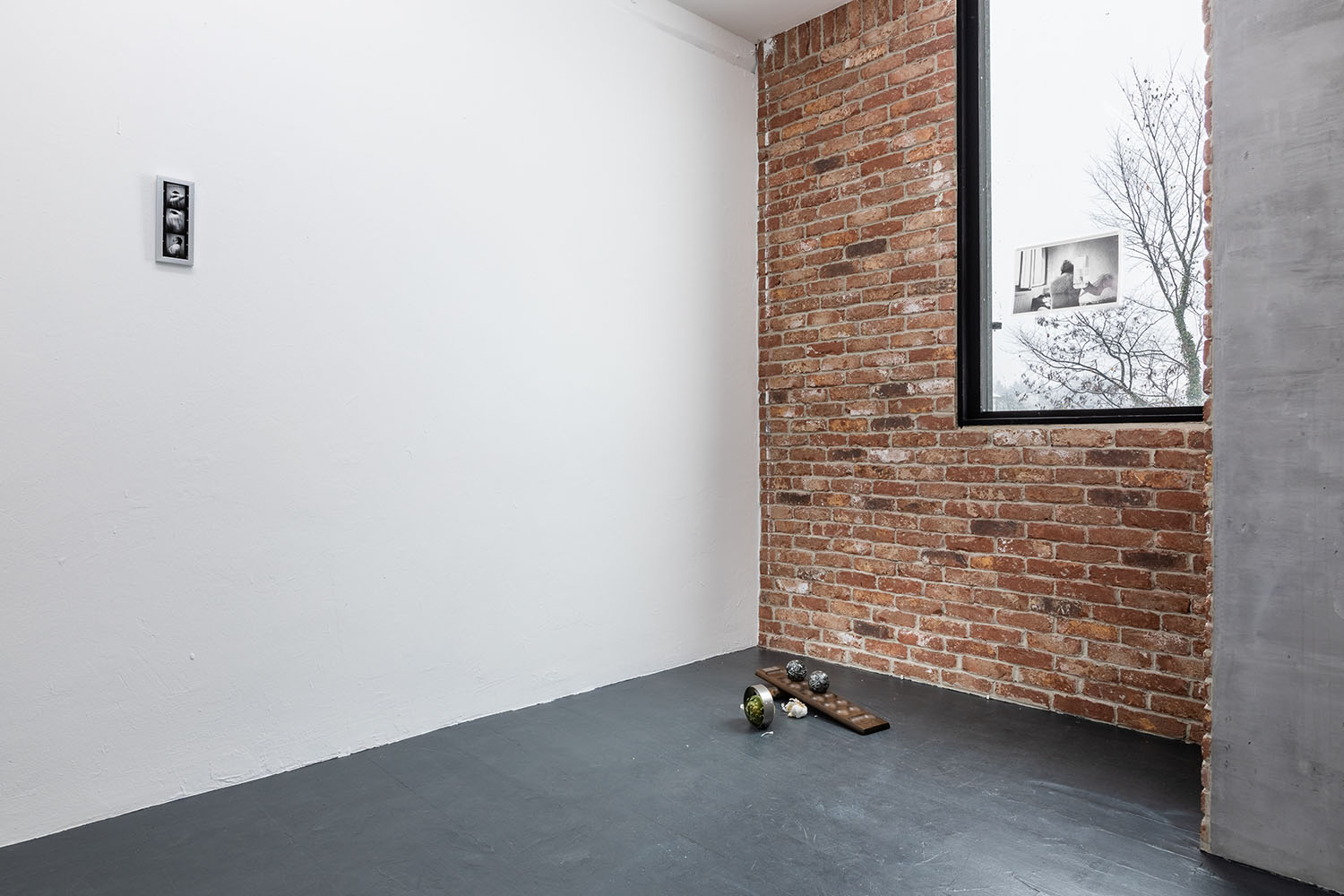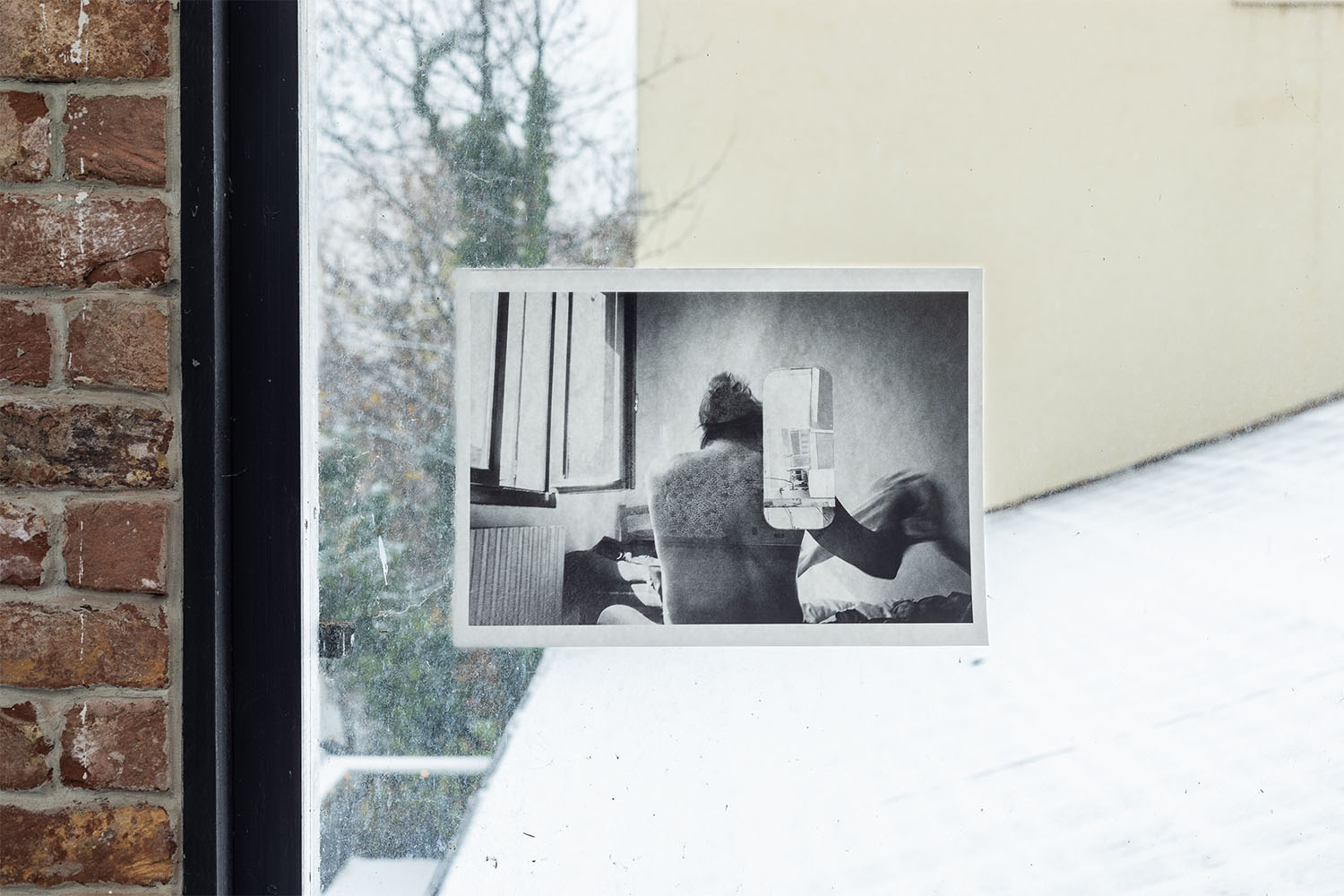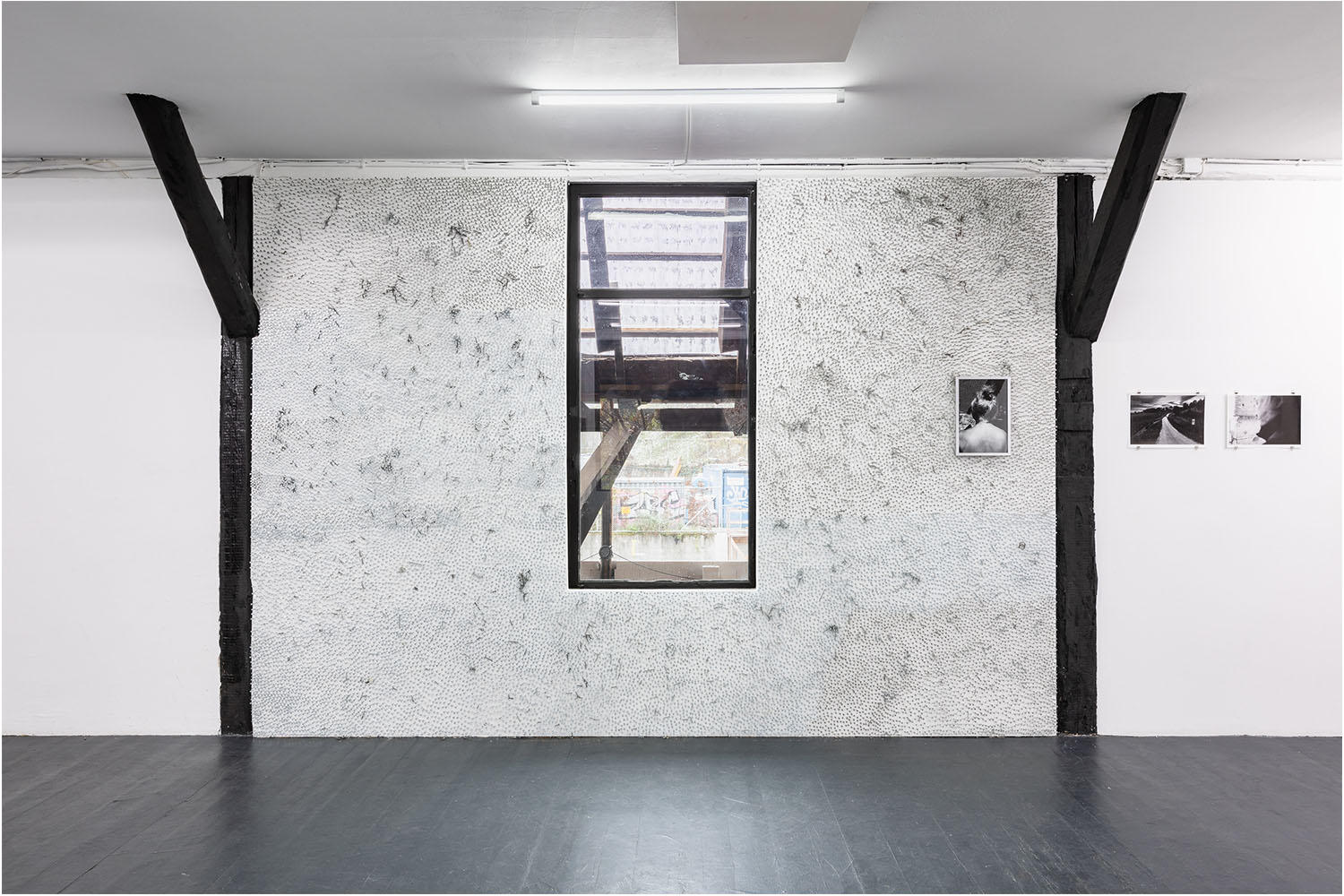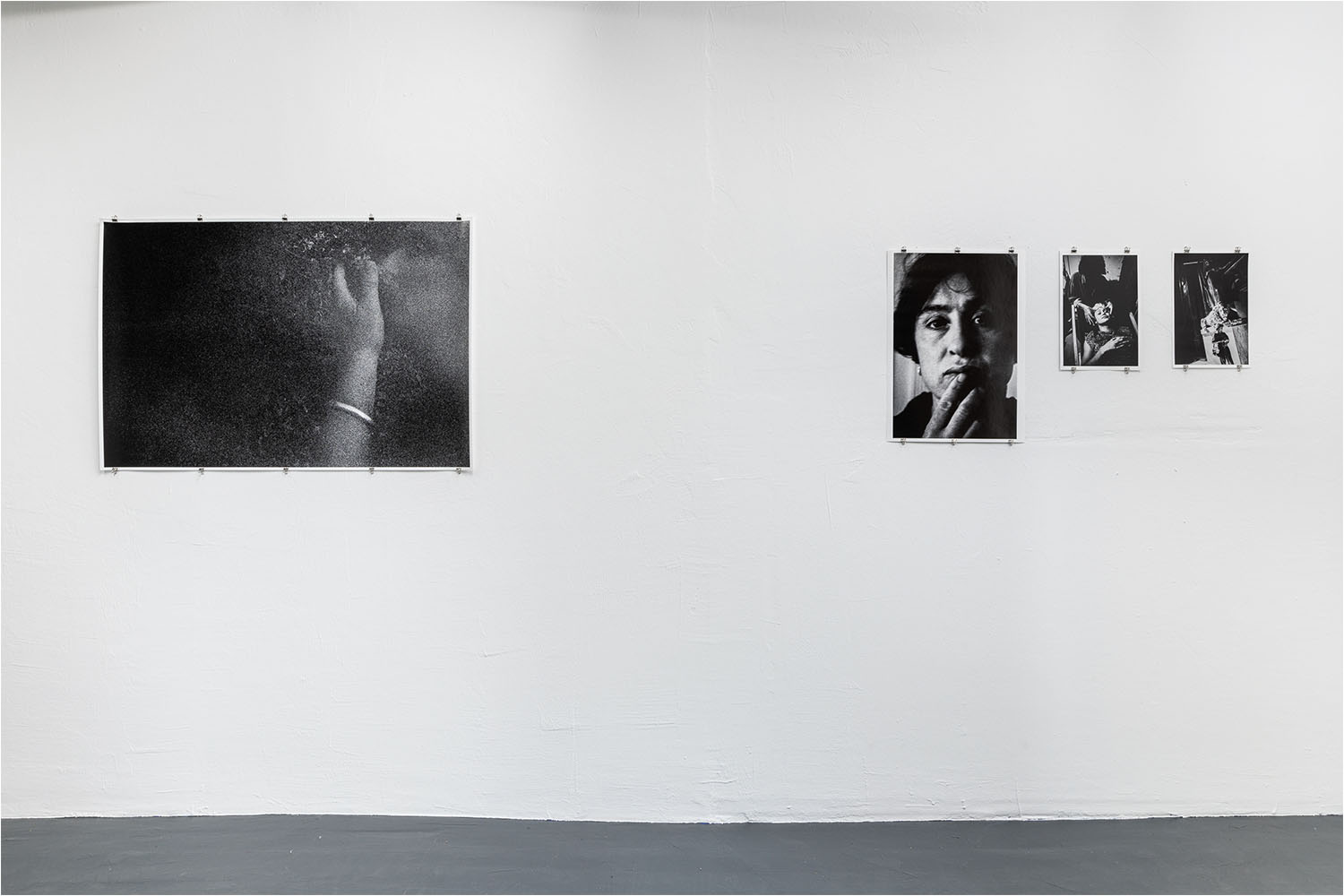The title of the exhibition “We Unleash Storms, Yet We Like the Sun” could be a tag on a wall. Or alternatively it’s that poetic phrase that you would stumble upon while scroll- ing your tumblr feed, so very millennial, or it’d be the kind of statement printed on some t-shirt, so very fast-fashion and pseudo-punk. Yet, if we travel back in time and we land in the sunny alleys of Naples in the 70s, we could have heard this very phrase in the midst of those busy streets, shouted at the top of the lungs by students, queers and hippies attending protests in rutilant public squares. Let us retrace the timeline in between: a surge of identity politics worldwide and in the specific case of Italy, the ebb in the private.
The exhibition features works by Lina Pallotta and Caterina De Nicola. Two artists who share similar artistic approaches. Photographs dating back to the 90s of Porpora Marcasciano, trans activist and writer, feature alongside embellished walls made of screws and translucent balls scattered on the floor. The never-ending trip of a lifetime in a constant process of pushing borders forward placed side by side with the dysfunctional meltdown of once-useful tools.
More contextual elements. It’s a herstory of real dreams, utopian practices and wet intimacies. The landscape you are witnessing is reminiscent of the 70s in Italy, a virtual civil war (T. Negri), where leftist groups, students, creatives were imagining another world; or, queer and trans people were making their way out of the closet through a movement of self-narration, mythopoiesis and discovery.
There was a widespread and growing aspiration towards experimenting with new gender models and different forms of sexuality and other infinite variations away from the path that society designated for us (P. Marcasciano, “L’aurora delle trans cattive”, 2018, p. 89). Lina Pallotta and Porpora Marcasciano met on the same side of those barricades in 1976, and they never left each other’s side. Despite the distance, they managed to meet in different places, be it the East Village in NYC or in Italy, in Rome, Bologna and Naples.
The photos retrace this journey, at once an individual gesture but also a collective effort of self-affirmation, a constant redoing of one’s self, a transito or passage that is at once collective, undefined and infinite as well as movementist (P. Marcasciano, “L’aurora delle trans cattive”, 2018, p. 91). More than 30,000 screws are a marker of such a trip. Their mechanical look signifies a strategy, a wheel in motion and a possible scheming of mischievous opacity and resistance.
“We Unleash Storms, Yet We Like the Sun” suggests opacity, precariousness and affectivity as reappropriated techniques for the production of the self. Porpora Marcasciano, whose gaze is omnipresent in Pallotta’s works and in sync with the dissident undercurrents in De Nicola’s installation, speaks of transito (transit) as a form of being. Transito is an uninterrupted passage of a human (or non-human) body through space, a body that can’t fully be grasped, shapeshifting. An infinite trip in perpetual motion, even when stuck in one place. Marcasciano uses the term when referring to her transition, as a continuous reshaping of her embodied self as well as her understanding of the world. Transito does not allow for a definitive shape, and it flourishes in the brokenness of being, a brokenness [that] is not a prescription for repair, rather an ensemble of desires, love and proximity.
Let’s revert back to the title: “We Unleash Storms, Yet We Like the Sun” presents a dichotomy, on the one hand an inability to stand still and on the other, a withdrawal from transparency. Pallotta and De Nicola reflect upon bodies reduced to their primary presence, a hard materiality, be it the cold steel of the screws, or the warm corporeality of the figure in the photographs. A hard materiality that reshapes desires, reorients hopes and reimagines possibilities.

